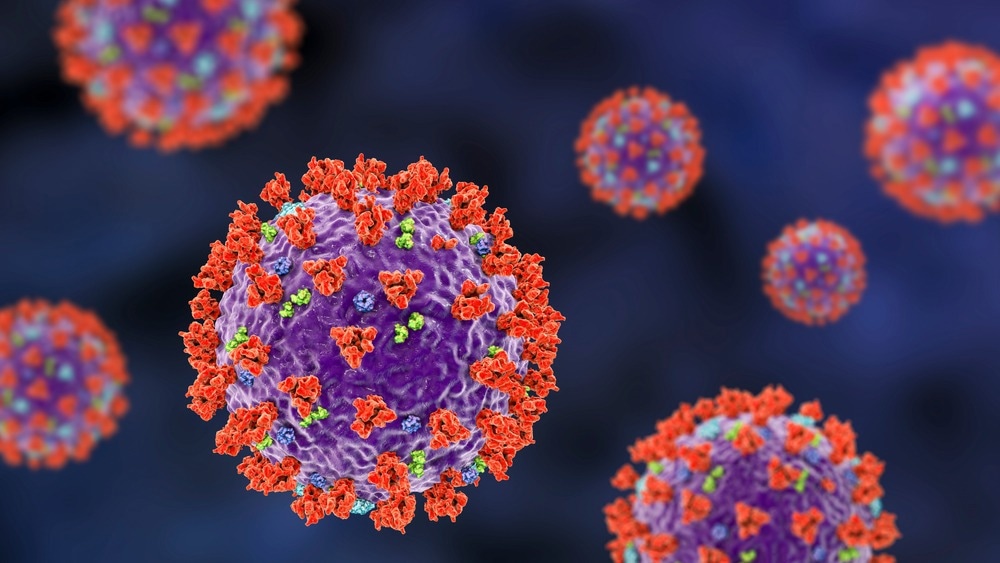A study praising the development of a potential treatment that might be applied to combat all recognized influenza strains was published online on January 13th, 2020.

Image Credit: Kateryna Kon/Shutterstock.com
The COVID-19 pandemic in the United States began two and a half years later, one week after the first SARS-CoV-2 patient with laboratory confirmation emerged.
It is interesting to note that the global research team behind the influenza study had also looked into coronavirus therapy before the virus that momentarily halted their work arrived.
At the time we thought MERS would be the big target, which we were worried about because of its 35% mortality rate.”
David Markovitz, Professor, Internal Medicine, Division of Infectious Diseases, University of Michigan Medical School
The Middle Eastern Respiratory Syndrome, or MERS, briefly broke out in 2015 and was responsible for 858 confirmed fatalities.
The effectiveness of H84T-BanLec against all coronaviruses known to infect humans, including MERS, the original SARS, and SARS-CoV2, including the omicron version, is described in a study published in Cell Reports Medicine.
Peter Hinterdorfer, PhD, of the Johannes Kepler University Institute of Biophysics, and Kwok-Yung Yuen, MBBS, MD, of the University of Hong Kong, are two senior authors who collaborated with Markovitz. Jasper Fuk-Woo Chan, MD, of the University of Hong Kong, is the study’s first author.
Markovitz added, “When COVID-19 occurred, we of course wanted to study the therapy’s potential and discovered it was effective against every type of coronavirus, in vitro and in vivo. Whether delivered systemically or through the nose in animal models, or prophylactically or therapeutically early on in the illness, it worked.”
A lectin (a protein that binds to carbohydrates) that was isolated from banana fruit is the source of H84T-BanLec. It binds to high-mannose glycans, polysaccharides found on the surface of viruses but very rarely on the surfaces of healthy, normal human cells, to achieve its amazing viral-blocking powers. Once bound, the virus is unable to infect cells.
The scientists demonstrated that H84T forms several strong connections with the spike protein using atomic force microscopy and similar techniques, which, according to Markovitz, presumably explains why it is challenging for a coronavirus to be resistant to the lectin.
Since they are proteins that might possibly impair the immune system, lectins have long been shunned as potential therapeutics despite their antiviral potential, according to Markovitz. H84T-BanLec, which has been altered to eliminate this effect, had no negative consequences in animal models.
Remdesivir, Paxlovid, and monoclonal antibodies are only a few of the COVID-19 therapies that are now available. However, due to their varying degrees of efficacy, side effects, and usefulness, many of them have become less effective as SARS-CoV2 continues to develop.
The team believes that H84T-BanLec has a special potential since it is efficient against all coronavirus variants and influenza viruses. Markovitz and the team are hoping that the treatment will make the more challenging transition from testing in animals to people.
In seasonal and pandemic scenarios, the team envisions a nasal spray or drops that could be utilized to combat or prevent coronavirus and influenza infections. The use of H84T-BanLec against cancer is another goal, as cancer cells contain high mannose glycan surfaces much like viruses do.
Source:
Journal references:
- Chan, J. F.-W., et al. (2022). A molecularly engineered, broad-spectrum anti-coronavirus lectin inhibits SARS-CoV-2 and MERS-CoV infection in vivo. Cell Reports Medicine. doi.org/10.1016/j.xcrm.2022.100774
- Covés-Datson, E. M., et al. (2022). A molecularly engineered antiviral banana lectin inhibits fusion and is efficacious against influenza virus infection in vivo. Proceedings of the National Academy of Sciences. doi.org/10.1073/pnas.1915152117